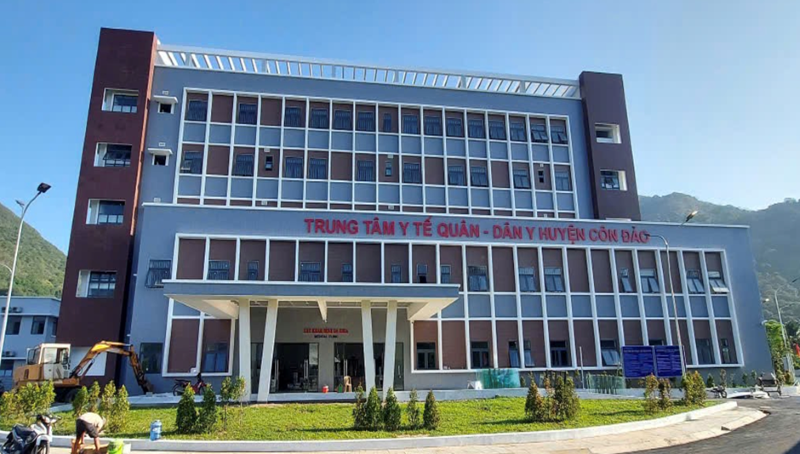On 3/7, Tang Chi Thuong, director of the Ho Chi Minh City Department of Health, stated that he had met with leading experts in surgery, obstetrics, internal medicine, and pediatrics from universities such as the University of Medicine and Pharmacy in Ho Chi Minh City and Pham Ngoc Thach University of Medicine, along with functional departments of the Department of Health, to discuss plans to enhance the healthcare capacity of the Con Dao special zone.
"The city's health sector, after the merger, will serve all citizens, leaving no one behind—including those on the farthest islands," Thuong said.
The Con Dao Special Zone Military-Civilian Medical Center serves not only the island's residents but also tens of thousands of tourists and officials annually. In recent years, the center has been rebuilt and equipped with modern facilities. However, the most challenging issue remains the shortage of specialized medical personnel. Emergency care, childbirth, dialysis, and maritime accidents—unique challenges for the island—are long-standing concerns for residents, tourists, and investors.
 |
The former Con Dao District Military-Civilian Medical Center, now the Con Dao Special Zone Military-Civilian Medical Center, boasts modern facilities. Photo: Ho Chi Minh City Department of Health |
The former Con Dao District Military-Civilian Medical Center, now the Con Dao Special Zone Military-Civilian Medical Center, boasts modern facilities. Photo: Ho Chi Minh City Department of Health
According to the head of Ho Chi Minh City’s health sector, the plan to enhance Con Dao's healthcare capacity is expected to be implemented in two phases.
In the first phase, during the third quarter of this year, the city will rotate skilled doctors to the island, specializing in obstetrics, surgery, internal medicine, and pediatrics. The health sector will organize remote consultations and continuous medical education (CME) online for medical staff in Con Dao.
This phase will prioritize developing safe and on-site obstetric services with a full team of obstetricians, anesthesiologists, and neonatal resuscitation specialists, reducing reliance on costly and risky transfers by ship or helicopter. The capacity for trauma, internal medicine, and pediatric emergencies, common healthcare needs in Con Dao such as maritime accidents, tourist accidents, and emergency care for children and the elderly, will be strengthened. The city will also prioritize establishing a local blood bank to ensure safe emergency care in obstetrics, surgery, and critical situations.
In the second phase, the health sector will develop a project with specific policies for Con Dao, aiming to establish a general hospital of appropriate scale. Major hospitals such as Hung Vuong, Nhi Dong 1, Binh Dan, and Nhan Dan Gia Dinh will strengthen their collaboration and professional support.
The Department of Health will collaborate with medical universities in the city to develop a residency training program that includes rotations in Con Dao. According to Thuong, this is an opportunity to provide training experience in a unique environment for resident doctors and to propose policies to retain and attract medical personnel to work in Con Dao.
The Department of Health is planning a field trip to Con Dao with leading experts to assess the situation and develop a suitable and sustainable implementation plan. The first rotation of specialized doctors from the city to work in Con Dao will coincide with the National Day celebrations on 2/9.
Following the merger, the Ho Chi Minh City Department of Health will have three offices: the main office at the former Department of Health headquarters, and two other offices in Binh Duong and Ba Ria - Vung Tau provinces (formerly), serving the healthcare needs of over 14 million city residents.
Le Phuong












